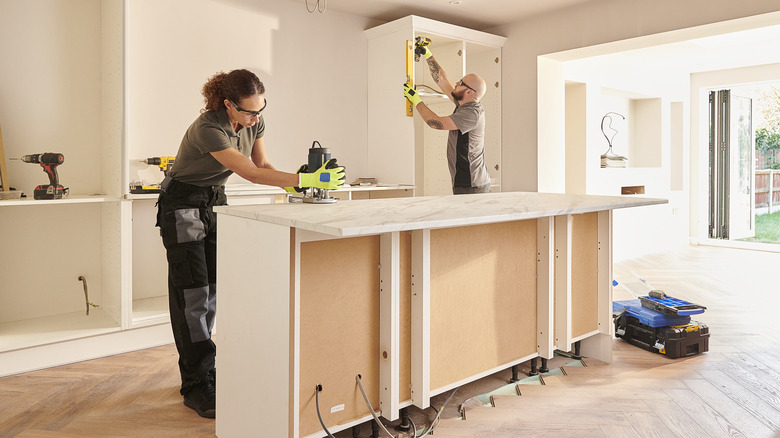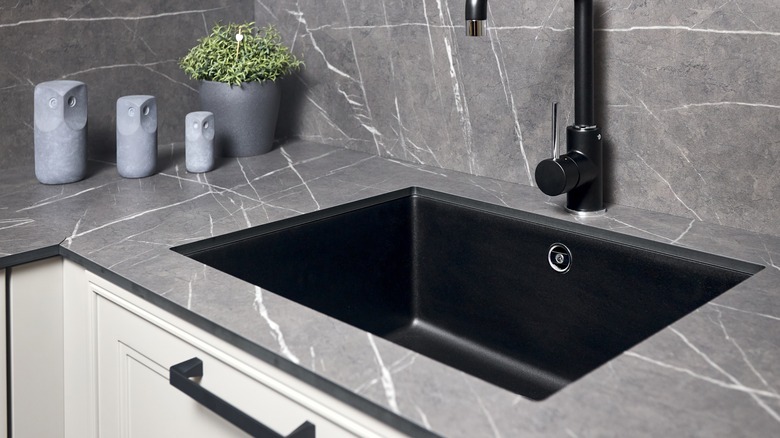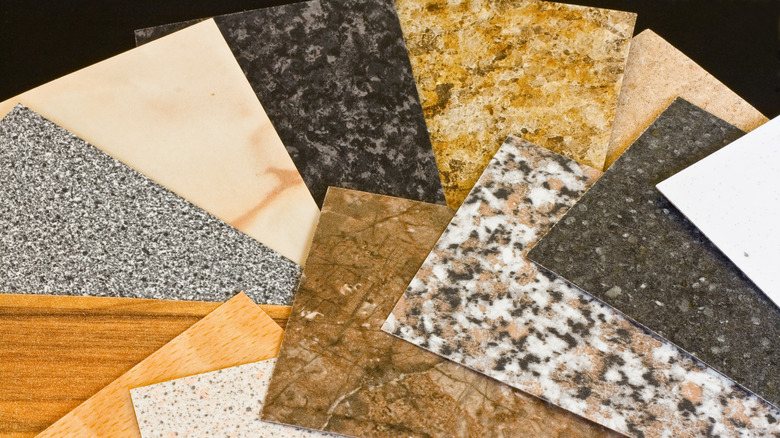Are Granite Or Laminate Countertops Easier To Maintain?
When it comes to that home you hope to remain in forever (or for a long time), you take the materials you use very seriously because you want them to last. While staying power is important, so is the question of maintenance. For example, the countertops you choose will inevitably affect your everyday life, and if they become a hassle to maintain, you might resent them. If you've narrowed your selection to granite or laminate countertops and are now experiencing a stalemate, choosing the easier material to care for could be the deciding factor. So, which is more straightforward regarding upkeep: granite or laminate? You might be surprised to discover that by buying laminate countertops, your daily maintenance will be easier than granite.
Granite countertops provide a classic finish that makes any room look luxurious. The polished rock provides texture and dimension without overpowering, adding to the aesthetic rather than taking away from it. Laminate countertops are simple in design but can easily elevate a room with the right color and finish. The plastic can be crafted to resemble high-end materials with a less expensive price tag, and the maintenance for these surfaces is simple, which makes them a great choice when renovating or designing a home. Maintaining your countertops isn't just about cleaning them, though that is a big part of it. Upkeep also includes ensuring the materials don't become corroded, scratched, dented, or marked over time.
Laminate is easier to maintain in the long run
The biggest reason laminate countertops supersede granite countertops when it comes to maintenance is that the latter has to be resealed every year or year and a half (or more if you choose lighter granite). This can range in cost, with each square foot reaching as high as $20. Depending on the size of your kitchen and countertop space, things can get expensive, and resealing the granite every year can become tedious. While both materials have pros and cons, one big pro when it comes to granite countertops is how long they last with proper care. This rock-based surface can withstand the test of time, lasting up to 100 years if properly sealed and maintained.
Laminate countertops usually last between 10 and 15 years before they need replacing. While you don't have to reseal them every couple of years, it's worth considering their lifespan before making your final decision. If you don't mind having to renovate your countertops every decade, the low-maintenance nature of laminate is a good choice, especially if you are on a budget or don't want the hassle of resealing the surfaces frequently. You can resurface laminate if it succumbs to too much wear and tear, and this only costs between $3 and $7 per square foot. This saves you from having to replace them altogether, but you can even revamp them yourself if you choose the right type of paint to use on your laminate countertops.
Low-maintenance countertops still need love, too
To clean laminate countertops, you only need some warm water and dish soap, which can then be wiped across the surfaces with a sponge or microfiber cloth. It's best to clean granite countertops with a store-bought granite cleaner, but you can also use mild dish soap mixed with warm water. Neither counter material requires much soap, so use less than a tablespoon when creating a solution. Granite cannot be scrubbed with sponges that could scratch them, meaning only gentle cloths are ideal for these. Anything that corrodes the granite seal will mean you have to reapply it sooner than the usual year-mark — another reason laminate is easier to maintain since the material can handle some sponges and a little more elbow grease.
To extend the life of your laminate countertops, avoid allowing extreme temperatures near the surface (so no items fresh from the oven directly on the counters), and don't use scrubbers that feature steel wool or stiff bristles. Sticking with gentle options will keep the laminate from looking dull or faded before their time. Suppose you notice chips, scratches, or dents. In that case, you can consider refinishing surfaces, which is done by a professional and is less expensive than replacing them.


